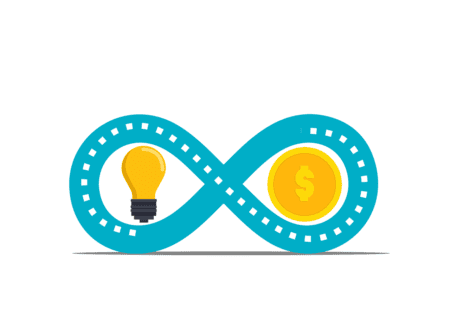Understanding Global Economic Shifts
Global economic shifts refer to the significant transformations occurring across various economies that ultimately affect individuals and businesses alike. These shifts can stem from a multitude of factors, including geopolitical changes, technological advancements, and evolving consumer behaviors. As the global marketplace becomes increasingly interconnected, these shifts are more pronounced, requiring individuals to stay informed about the dynamic landscape of personal finance.
Geopolitical changes, such as the emergence of new trade agreements or the disruption caused by international conflicts, can dramatically influence local economies. For instance, changes in tariffs or trade policies can affect import and export prices, subsequently impacting everyday consumers through fluctuating prices on goods and services. Moreover, political stability in various regions may attract foreign investments, leading to job creation that can reverse previous employment trends.
Technological advancements represent another vital factor shaping global economies. The rise of e-commerce, digital currencies, and automation has transformed traditional business models, affecting how products are manufactured, marketed, and sold. As technology continues to evolve, it drives changes in consumer behavior, encouraging individuals to adopt new purchasing methods and preferences that can significantly alter market trends.
Additionally, consumer behavior shifts often reflect in key economic indicators such as inflation rates and employment trends. Increased demand for certain products can lead to higher prices, influencing inflation, while shifts in consumer preferences can create new job opportunities in emerging sectors. Understanding these indicators is crucial for consumers, as they provide valuable insights into the overall economic health and help individuals make informed financial decisions.
In summary, recognizing the multifaceted nature of global economic shifts offers vital context for understanding their far-reaching implications on personal finance. Awareness of these trends can empower consumers to adapt and thrive amidst economic changes.
Inflation and Cost of Living Adjustments
As we look ahead to 2025, inflation is projected to significantly shape the economic landscape, impacting consumer purchasing power across the globe. Forecasters predict that sustained inflation rates could lead to substantial increases in the cost of living, affecting a variety of sectors. Key areas such as housing, food, and transportation are anticipated to experience notable upward pressure on prices, resulting from factors including supply chain disruptions, increased production costs, and heightened demand.
Housing costs, in particular, are expected to rise as the demand for residential properties continues to outstrip supply in many urban areas. With interest rates potentially fluctuating in response to central bank policies, mortgage payments could become a significant strain on household budgets. Moreover, rental markets may witness similar trends, making affordable housing increasingly elusive for many families. Consequently, budgeting for these expenses will be essential for maintaining financial stability.
Another critical area of concern is the cost of food. Agricultural inflation, driven by weather anomalies and changes in global trade policies, may cause grocery bills to soar. Families could find themselves paying a premium for everyday essentials, necessitating adjustments in dietary choices or shopping habits to cope with rising costs. Furthermore, transportation expenses, including fuel prices, are likely to reflect ongoing tensions in geopolitical markets, translating into higher costs for commuting and travel.
To effectively manage these anticipated changes in inflation and the cost of living, consumers are encouraged to adopt proactive budgeting strategies. This can include reviewing and adjusting spending habits, prioritizing essential expenses, and exploring alternatives to traditional consumption patterns. By planning ahead for inflation-induced challenges, individuals can better safeguard their financial well-being and adapt to the evolving economic environment.
Investment Strategies for a Changing Economy
As global economic shifts reshape the landscape for investors, it is essential to reassess traditional strategies and be open to new opportunities. The dynamics of stocks, bonds, and real estate are likely to fluctuate, influenced by technological advancements, geopolitical events, and changing consumer behaviors. Understanding these market conditions will be vital for making informed investment decisions.
Historically, equities have been seen as a principal driver of wealth, particularly during times of economic growth. However, as we approach 2025, investors should consider sectors that are likely to thrive amidst economic transformations. Industries such as renewable energy, technology, and healthcare are predicted to gain prominence, offering potential gains for those willing to shift their capital away from traditional sectors.
Bonds, on the other hand, are often viewed as safer investments, particularly during uncertain times. However, with potential changes in interest rates and inflationary pressures, the fixed income market could present both opportunities and challenges. Investors may need to consider diversifying their bond portfolios, venturing into municipal, corporate, or inflation-protected securities to enhance returns without significantly increasing risk.
Real estate remains a pivotal asset class in any robust investment strategy. As urbanization and demographic shifts continue, certain markets could experience significant growth. Properties in emerging markets or trendy urban areas are poised for appreciation. However, the potential for volatility due to economic shifts underscores the importance of due diligence before committing capital to real estate investments.
In light of these potential shifts, diversification emerges as a critical strategy for investors. By spreading investments across various asset classes, including alternative investments such as commodities or cryptocurrencies, individuals can manage risk more effectively. The ultimate aim should be to create a balanced portfolio that can weather economic uncertainties while positioning for long-term growth, adapting to emerging trends within the ever-evolving global economy.
Preparing Your Wallet for the Future
As global economic shifts loom on the horizon, preparing your wallet for the future has become more essential than ever. Individuals must adapt their financial strategies to navigate the uncertainties that the year 2025 may bring. One of the first steps to consider is enhancing your budgeting skills. A comprehensive budget not only provides a clear picture of your income and expenditures but also allows you to identify areas where you can cut back or allocate additional funds. By tracking your spending habits meticulously, you can make informed decisions that will benefit your financial health.
Another key strategy is to prioritize saving. Establishing an emergency fund with at least three to six months’ worth of living expenses can act as a safety net in times of economic instability. This fund should be easily accessible, allowing you to cover unexpected costs without jeopardizing your overall financial stability. Additionally, consider automating your savings. Setting up automatic transfers to a savings account can help you consistently contribute to your financial goals without the temptation to overspend.
Moreover, financial literacy plays a pivotal role in equipping individuals to make sound economic decisions. Understanding fundamental concepts such as investment strategies, interest rates, and inflation can empower you to optimize your resources effectively. Engaging in online courses, reading finance-related literature, or attending workshops can bolster your financial knowledge and confidence. The better informed you are, the more capable you will be in adapting your wallet strategies to the evolving economic landscape.
In conclusion, taking proactive steps, such as budgeting, saving, and enhancing your financial literacy, can significantly influence how well you prepare your wallet for the challenges of 2025. Being proactive in managing your finances will not only safeguard your economic future but also provide peace of mind as you navigate changes within the global economy.







